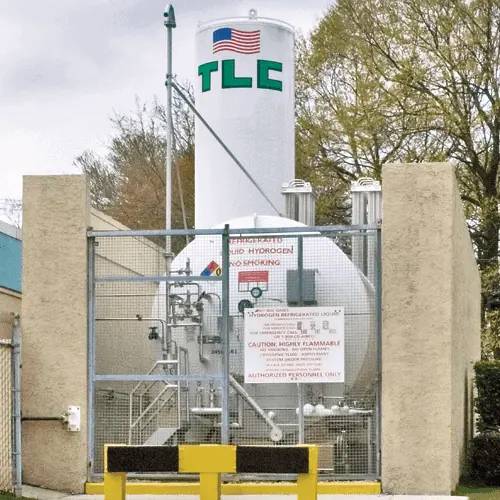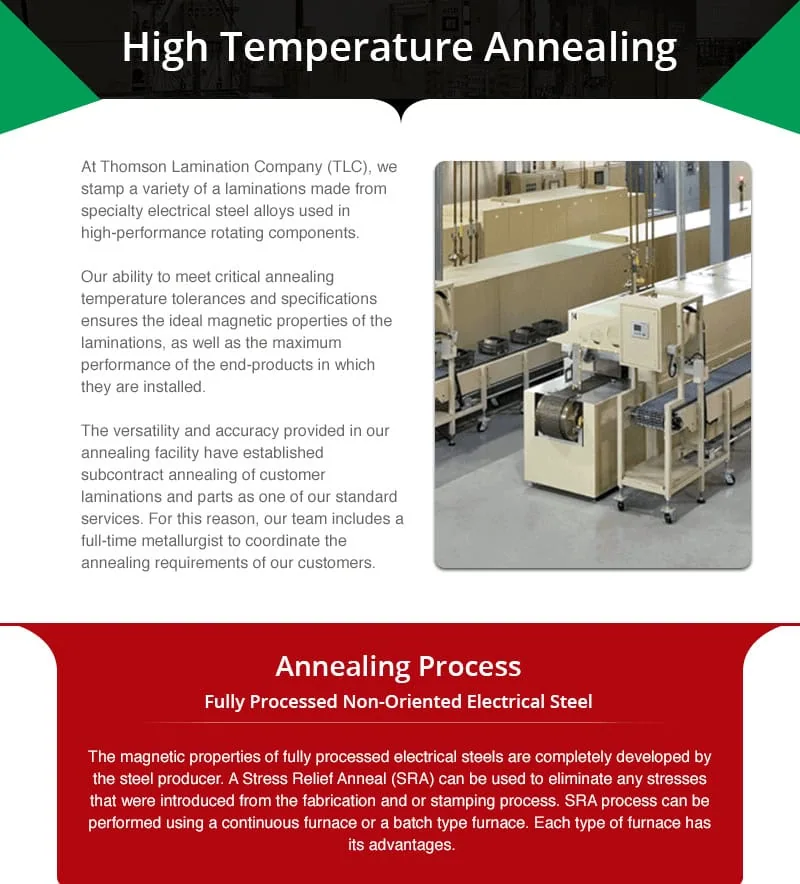High Temperature Annealing
At Thomson Lamination Company (TLC), we stamp a variety of a laminations made from specialty electrical steel alloys used in high-performance rotating components such as fractional horsepower motors, servos, synchro’s, resolvers, gyros, and other motor parts. Due to this specialized component production, TLC places major emphasis on providing the most sophisticated and modern annealing facility in our industry.
Our ability to meet critical annealing temperature tolerances and specifications ensures the ideal magnetic properties of the laminations, as well as the maximum performance of the end-products in which they are installed. The versatility and accuracy provided in our annealing facility have established subcontract annealing of customer laminations and parts as one of our standard services. For this reason, our team includes a full-time metallurgist to coordinate the annealing requirements of our customers.

